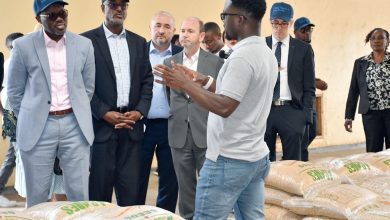Malawi’s social protection value on the decline—UN
The United Nations (UN) has said the value of Malawi’s social cash transfer continues to erode in the face of prevailing macro-fiscal challenges.
The challenges, being exacerbated by high inflation rate at 28.2 percent, exchange rate pressures and fiscal deficits, are further jeopardising the gains in the country’s social protection system.
The 2025/26 Social Protection Budget Brief published by United Nations Children Education Fund (Unicef) on Tuesday indicates that allocations to on-budget social protection programmes have declined by three percent from K224 billion in 2024/25 to K217 billion in the current fiscal year.

However, in real terms, the budget has declined by 20 percent, considering a projected annual average inflation of 22.3 percent for 2025/26 fiscal year.
The social cash transfer programme transfer value averaging K16 380 per household per month has also been eroded by 25 percent to roughly K12 300 in real terms, undermining the well-being of poor and vulnerable households, especially women and children and ultimately weakening household resilience.
Unicef said government is encouraged to safeguard the purchasing power of cash transfers by pegging the transfer amounts to inflation and exploring indexation mechanisms as Malawi’s protracted recovery from climatic shocks is exacerbating vulnerabilities within an already fragile economic landscape.
Reads the brief in part: “This downward trend reflects the sensitivity of social protection investments to donor financing and represents a worrying reversal.
“While the need to expand the coverage of current social protection programmes to address rising vulnerabilities is critical, mounting fiscal pressures and an anticipated dramatic reduction in donor funding present significant sustainability risks.”
Since the government took over cash transfers to beneficiaries in Thyolo in 2014, it has recently committed to taking on four additional districts during the 2025/26 fiscal year, pushing government’s contribution from the current five percent to at least 15 percent of the social cash transfer programme budget.
With over 95 percent of the programme funded by donors, the evolving donor landscape, characterised by shifts in funding priorities and uncertainty in long-term commitments, mounts pressure on the sustainability of social protection financing in Malawi.
Already, some donors such as the World Bank, are signalling a major reduction in funding that requires a significant scaling down of the two flagship programmes, social cash transfer programme and climate-smart enhanced public works programme from 2027.
In a written response on Tuesday, governance expert Lingalireni Mihowa observed that the economy is in distress with limited fiscal space for government allocations to social protection programmes.
She said: “What is important is to accelerate efforts on implementation of the agriculture, tourism, mining and manufacturing (ATM+M) strategy to grow the economy, create a conducive environment for private sector to thrive and drive the economy.
“Investments have to be made in productive social protection programmes and in the long run, we will see a better economy that can address inequalities.”
Currently, the Social Cash Transfer Programme covers only 10 percent of the population, even though 20.5 percent live in ultra-poverty, while other programmes, cover approximately 11 per cent of households across Malawi.
Meanwhile, Malawi Government with technical support from Unicef through financial assistance from the European Union and Ireland, is currently developing a Social Protection Financing Strategy to guide long-term, sustainable financing for social protection.
The strategy is expected to provide a set of feasible and context-specific options for the government to mobilise and diversify resources, particularly in light of declining donor contributions.





